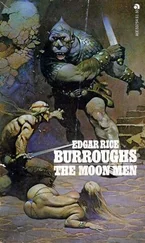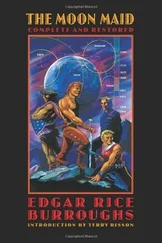Edgar Burroughs - The Red Hawk
Здесь есть возможность читать онлайн «Edgar Burroughs - The Red Hawk» весь текст электронной книги совершенно бесплатно (целиком полную версию без сокращений). В некоторых случаях можно слушать аудио, скачать через торрент в формате fb2 и присутствует краткое содержание. Жанр: Боевая фантастика, на английском языке. Описание произведения, (предисловие) а так же отзывы посетителей доступны на портале библиотеки ЛибКат.
- Название:The Red Hawk
- Автор:
- Жанр:
- Год:неизвестен
- ISBN:нет данных
- Рейтинг книги:3 / 5. Голосов: 1
-
Избранное:Добавить в избранное
- Отзывы:
-
Ваша оценка:
- 60
- 1
- 2
- 3
- 4
- 5
The Red Hawk: краткое содержание, описание и аннотация
Предлагаем к чтению аннотацию, описание, краткое содержание или предисловие (зависит от того, что написал сам автор книги «The Red Hawk»). Если вы не нашли необходимую информацию о книге — напишите в комментариях, мы постараемся отыскать её.
The Red Hawk — читать онлайн бесплатно полную книгу (весь текст) целиком
Ниже представлен текст книги, разбитый по страницам. Система сохранения места последней прочитанной страницы, позволяет с удобством читать онлайн бесплатно книгу «The Red Hawk», без необходимости каждый раз заново искать на чём Вы остановились. Поставьте закладку, и сможете в любой момент перейти на страницу, на которой закончили чтение.
Интервал:
Закладка:
Red Lightning must have been thirsty, too, but the great waves rolling in frightened him so that it was with difficulty that I urged him to the water’s edge; but training and heredity are stronger than fear, and at last he walked out upon the sands until the waters, surging in, broke about his pasterns. Then I threw myself from him at full length upon the beach and as the next wave rolled in I buried my face in it and quaffed one deep drink.
One was enough. Sputtering, choking and gagging, I sprang to my feet. What poisoned liquid rolled in this hellish cauldron? I became very sick. Never in my life had I experienced such ill sensations.
I thought that I was dying, and in my agony I saw Red Lightning dip his velvet muzzle into the treacherous liquid.
Red Lightning took one draught, as had I, and then, snorting, he leaped back from that vast pool of iniquity. For a moment he stood there wide-eyed, staring at the water, pained surprise in his eyes.
Then he fell to trembling as, upon wide spread feet, he swayed to and fro. He was dying-together we were dying at the foot of the goal we had achieved after four hundred years of battle and suffering.
I prayed that I might live even if it were only long enough for me to reach my people and warn them against this hideous monster lying in wait for them. Better that they flee back to their desert than trust themselves to his unknown world where even the fairest of waters held death.
But I did not die. Neither did Red Lightning die. I was very sick for an hour; but after that I rapidly recovered. It was a long time after before I learned the truth about sea water.
6
Saku the Nipon
Hungry and thirsty, Red Lightning and I set off up the canon away from the sea, presently entering the first side canon bearing in a northerly direction, for it was my desire to pass through these mountains in the hope of finding a valley running east and west which I could follow back in the direction of my people.
We had proceeded only a short distance up the side canon when I discovered a spring of pure water and around it an abundance of fine pasture. It was, nevertheless, with some feeling of trepidation that I sampled the liquid; but the first mouthful reassured me and a moment later Red Lightning and I were drinking avidly from the same pool. Then I removed his saddle and bridle and turned him loose to browse upon the lush grasses, while I removed my clothing and bathed my body, which was, by now, sorely in need of it.
I felt much refreshed, and could I have found food should soon have been myself again; but without bow and arrows my chances seemed slight unless I were to take the time to construct a snare and wait for prey.
This, however, I had no mind to do, since I argued that sooner or later I must run across human habitation, where, unless greatly outnumbered by armed men, I would obtain food.
For an hour I permitted Red Lightning to line his belly with nutritious grasses and then I called him to me, resaddled, and was on my way again up the wooded, winding canon, following a well marked trail in which constantly appeared the spoor of coyote, wolf, hellhound, deer and lion, as well as those of domestic animals and the sandaled feet of slaves, but I saw no signs of shod horses to indicate the presence of Kalkars. The imprints of sandals might mark only the passage of native hunters, or they might lead to a hidden camp. It was this latter that I hoped.
Throughout all the desert and mountain country the camps of the slaves are to be found, for they are not all attached to the service of the whites, there being many who live roving lives, following the game and the pasture and ever eluding the white man. It was the Kalkars who first gave them the name of slave, they say, but before that they were known to the ancients by the name of In-juns.
Among themselves they use only their various tribal names, such as Hopi, Navaho, Mojave, to mention the better known tribes with which we came in contact on the desert and in the mountains and forests to the east. With the exception of the Apache and the far Yaqui, and of the latter we knew little except by repute, they are a peaceful people and hospitable to friendly strangers. It was my hope, therefore, to discover a camp of these natives, where I was sure that I would be received in peace and given food.
I had wound upward for perhaps three miles when I came suddenly upon a little, open meadow and the realization of my wish, for there stood three of the pointed tents of slaves consisting of a number of poles leaning inward and lashed together at the top, the whole covered by a crazy patchwork consisting of the skins of animals sewn together. These tents, however, were peculiar, in that they were very small.
As I came in sight of the camp I was discovered by a horde of scrawny curs that came bristling and yapping toward me, apprising their masters of the presence of a stranger. A head appeared in the opening of one of the tents and was as quickly withdrawn.
I called aloud that I would speak with their chief and then I waited through a full minute of silence. Receiving no reply I called again, more peremptorily, for I am not accustomed to waiting long for obedience.
This time I received a reply. “Go away, Kalkar,” cried a man’s voice. “This is our country. Go away or we will kill you.”
Evidently these people dared voice their antagonism to the Kalkars, and from my knowledge of the reputation of the latter I knew this to be the most unusual in any country that they dominated. That they hated them I was not surprised-all people hate them. It was upon the assumption of this common hatred that I based my expectation of friendly assistance from any slave with whom I might come in contact in the Kalkar country.
“I am not a Kalkar,” I therefore replied to the voice, whose owner still remained behind the skins of his diminutive tent, upon the floor of which he must have been sitting, since no man could stand upright in it.
“What are you?” asked the voice.
“I am a desert Yank,” I replied, guessing that he would be more familiar with that word than American or Julian.
“You are a Kalkar,” he insisted. “Do I not see your skin, even if your cloak and bonnet were not enough to prove you a Kalkar?”
“But I am not a Kalkar. I have but just escaped them and I have been long without food. I wish food and then I will go on, for I am in search of my own people who are fighting the Kalkars at the edge of their great camp to the east.”
He stuck his head through the flap then and eyed me closely. His face was small and much wrinkled and he had a great shock of stiff, black hair that stuck out in all directions and was not confined by any band. I thought that he must still be sitting or squatting upon the ground, so low was his head, but a moment later, when, evidently having decided to investigate my claims more closely, he parted the flap and stepped out of the tent, I was startled to see a man little more than three feet tall standing before me.
He was stark naked and carried a bow in one hand and several arrows in the other. At first I thought he might be a child, but his old and wrinkled face as well as the well developed muscles moving beneath his brown skin belied that.
Behind him came two other men of about the same height and simultaneously from the other two tents appeared six or eight more of these diminutive warriors. They formed a semicircle about me, their weapons in readiness.
“From what country do you come?” demanded the little chief.
I pointed toward the east. “From the desert beyond your farthest mountains,” I replied.
He shook his head. “We have never been beyond our own hills,” he said.
It was most difficult to understand him, although I am familiar with the dialects of a score of tribes and the mongrel tongue that is employed by both the Kalkars and ourselves to communicate with the natives, yet we managed to make ourselves understood to each other.
Читать дальшеИнтервал:
Закладка:
Похожие книги на «The Red Hawk»
Представляем Вашему вниманию похожие книги на «The Red Hawk» списком для выбора. Мы отобрали схожую по названию и смыслу литературу в надежде предоставить читателям больше вариантов отыскать новые, интересные, ещё непрочитанные произведения.
Обсуждение, отзывы о книге «The Red Hawk» и просто собственные мнения читателей. Оставьте ваши комментарии, напишите, что Вы думаете о произведении, его смысле или главных героях. Укажите что конкретно понравилось, а что нет, и почему Вы так считаете.








